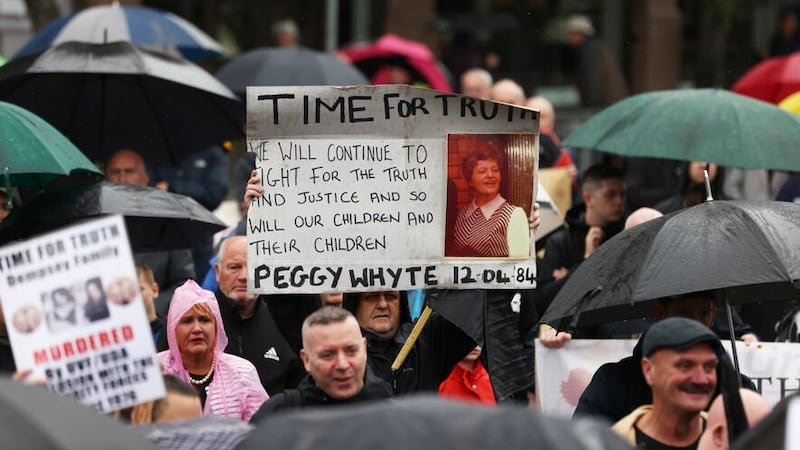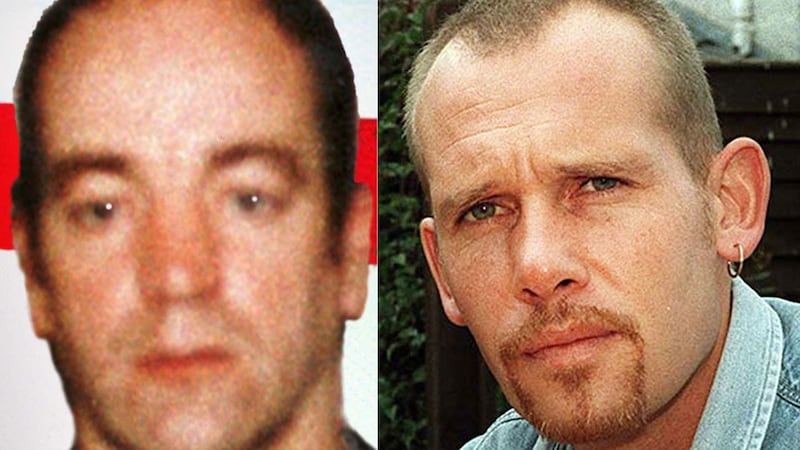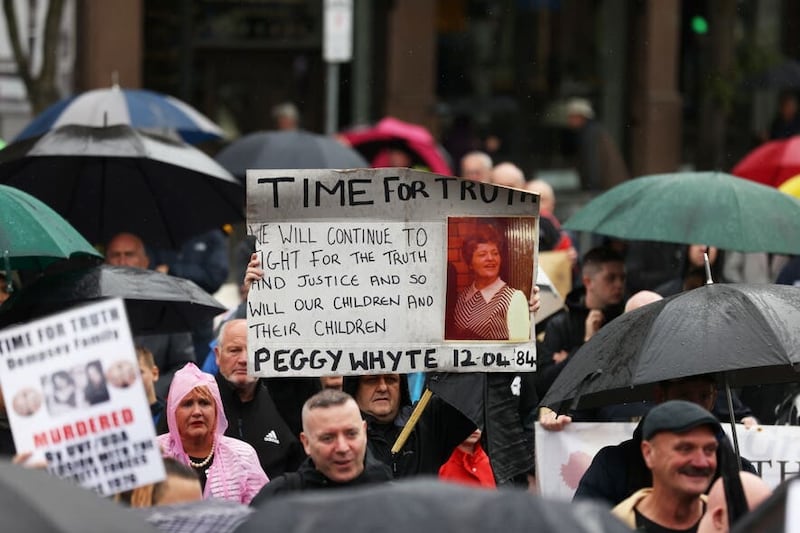A LEADING legal expert has warned that a key amendment to the British government's controversial Legacy Bill "runs contrary to the Good Friday Agreement".
The proposed legislation, which has been dubbed the 'Bill of Shame' by some opponents, goes to committee stage at the House of Lords today.
The Northern Ireland Troubles (Legacy and Reconciliation) Bill has sparked cross-community opposition.
Under the plan only inquests which have reached substantive hearing stage a year after the bill will be allowed while civil cases have been stopped.
Immunity from prosecution will also be offered in some circumstances.
Last month ex-Irish foreign affairs minister Simon Coveney said his government could not support the bill, while Labour leader Keir Starmer has promised to repeal the legislation if he leads the next London government.
Under the contentious blueprint an Independent Commission for Reconciliation and Information Recovery (ICRIR) will be established.
Last week the British government tabled a series of amendments to the bill, including a proposal which would remove a key component of the Good Friday Agreement focusing on provision made around prisoner release.
Under the 1998 agreement paramilitary prisoners were released early from prison.
In addition, people subsequently charged in relation to incidents which took place prior to the Good Friday Agreement being signed will only face a maximum of two years in prison if convicted.
In a statement issued by the Northern Ireland Office last week the British government revealed it is now planning to "disapply the Northern Ireland (Sentences) Act 1998 for individuals who choose not to tell the commission (ICRIR) what they know and are then convicted of an offence so that they face a full, rather than reduced, sentence".
Experts believe the proposal is a "way of ‘incentivising’ applications to the ‘conditional immunities’ amnesty scheme".
Professor Kieran McEvoy of Queens University School of Law last night said "the proposed amendment to disapply the early release scheme runs contrary to the Good Friday Agreement".
"In addition, these amendments are not actually designed to help victims get to the truth," he said.
"If the government wished to facilitate truth recovery it would ensure that the proposed commission had the proper legal powers to conduct investigations to get to the truth.
“It would also ensure that anyone benefitting from an amnesty would have to provide ‘full disclosure’ as happened in South Africa."
Daniel Holder, deputy director of the Committee on the Administration of Justice, was also critical.
"The NIO statement is entirely misleading," he said.
"There is no requirement on suspects to tell the proposed legacy commission ‘what they know’ to avail of the amnesty.
"The threshold remains remarkably low and does not require any new information.
"The amnesty does however put suspects beyond the scope of any legacy investigation with teeth.”
An NIO spokesperson said: "The Government has tabled an amendment ahead of Committee Stage to make it absolutely clear that the Independent Commission established by the Bill will have all the necessary powers to conduct criminal investigations as part of any review, ensuring compliance with our obligations under the European Convention on Human Rights.
"The Bill ensures that an individual will only be granted immunity from prosecution on a case-by-case basis, and only where the Commission - having taken into account all relevant evidence in its possession - is satisfied that the person applying has provided an account that is true to the best of their knowledge and belief.
"The amendment to disapply the Sentencing Act 1998 is a direct response to concerns that have been raised by stakeholders, including victims and survivors, and will ensure that those who decline to assist in the provision of information for bereaved families and victims and survivors will face the risk of a full custodial sentence. This is not inconsistent with the Belfast/Good Friday Agreement which recognises the need to acknowledge and address the suffering of the victims of violence."








